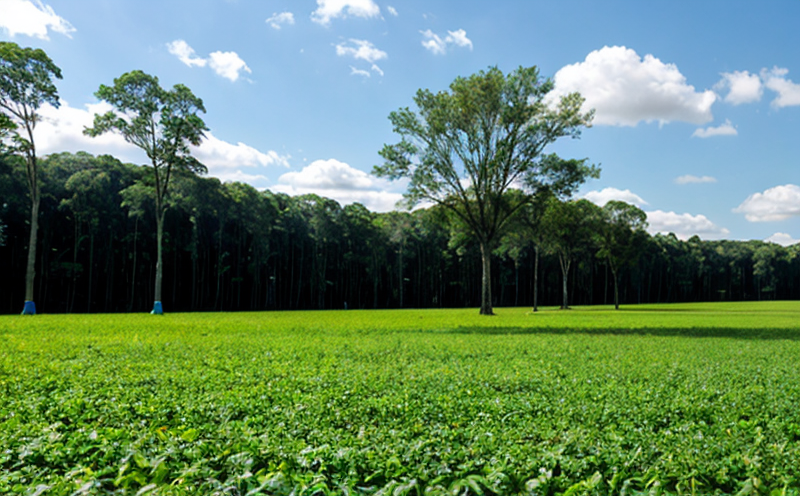Organic Certification Testing of Natural Consumer Products
The organic certification testing of natural consumer products is a critical process that ensures compliance with stringent regulations and standards. This service is designed for quality managers, compliance officers, R&D engineers, and procurement specialists to ensure their products meet the rigorous criteria set by organic certification bodies.
Organic certification typically involves verifying the absence of synthetic chemicals, pesticides, and fertilizers in consumer products such as food, beverages, textiles, and cosmetics. The testing process is not just about compliance; it's also about delivering a high level of trust to consumers who value natural and sustainable products.
The first step in this certification process involves understanding the specific standards relevant to the product type. For instance, if you're dealing with organic textiles, you'll need to ensure that the fibers are derived from plants or animals without chemical treatment. Similarly, for organic food products, the testing focuses on ensuring the product is free from genetically modified organisms (GMOs) and has been grown using sustainable agricultural practices.
The testing process itself involves multiple stages:
- Initial review of the product's origin and production processes
- Sampling and preparation for analysis
- Analytical testing to identify presence of prohibited substances
- Review of documentation supporting the organic claims
- Final certification report generation
The laboratories involved in this process are equipped with state-of-the-art instrumentation, including mass spectrometers and chromatography systems, which allow for precise identification of trace elements and compounds. This ensures that even minute traces of non-organic substances do not escape detection.
Understanding the scope and methodology is essential to ensure thorough testing:
| Aspect | Description |
|---|---|
| Sampling | Representative samples are taken from the production batches to ensure that testing reflects the overall quality of the product. |
| Testing Parameters | This includes moisture content, ash analysis, and pesticide residue tests, among others. |
| Instrumentation | High-precision instruments such as GC-MS (Gas Chromatography-Mass Spectrometry) are used to analyze the samples. |
The methodology is based on internationally recognized standards, including ISO 17025 and IEC standards, which ensure that the testing process is consistent and reliable. Compliance with these standards guarantees accurate results and enhances credibility in the market.
Reliability assurance comes from rigorous quality control measures:
- Dedicated Quality Assurance personnel
- Regular calibration of laboratory instruments
- Continuous training for laboratory staff to keep abreast with latest testing techniques
- Independent validation checks by third parties
Scope and Methodology
| Aspect | Description |
|---|---|
| Sampling Strategy | Stratified sampling ensures that every batch is represented in the testing process. |
| Analytical Methods | GC-MS, HPLC (High Performance Liquid Chromatography), and FTIR (Fourier Transform Infrared Spectroscopy) are used to analyze samples. |
| Acceptance Criteria | Products must meet the specific thresholds set by organic certification bodies, such as USDA or EU standards. |
The scope of this testing is comprehensive and covers various aspects including chemical composition, microbial safety, allergen identification, and more. The methodology ensures that every product undergoes a thorough examination to meet the stringent requirements for organic certification.
Quality and Reliability Assurance
- Dedicated Quality Assurance personnel ensure that all processes are followed strictly.
- Instrumentation is regularly calibrated to maintain precision.
- The laboratory staff undergoes continuous training to stay updated with the latest testing techniques.
- Independent validation checks by third parties add a layer of reliability.
Environmental and Sustainability Contributions
The organic certification process not only ensures product safety but also contributes significantly to environmental sustainability. By promoting the use of natural, non-synthetic materials, this testing helps in reducing the carbon footprint associated with chemical-intensive production processes.
Organic products often come from sustainable farming practices that conserve water and reduce soil degradation. This aligns perfectly with broader sustainability goals aimed at preserving ecosystems and supporting biodiversity.
The certification process also encourages recycling and minimizes waste, which is crucial in today's environmentally conscious market. Consumers are increasingly looking for brands that not only deliver quality products but also contribute positively to the environment.





